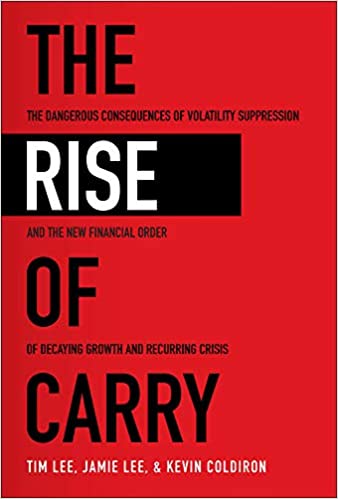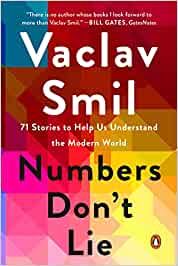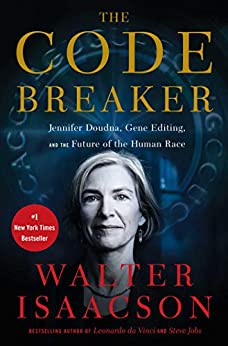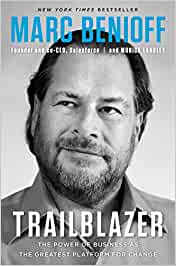Summer Reading summary
Over (spring and) summer, I managed to read a couple of books that might be interesting for my readers. This time a try a new format with a shorter summary on a couple of books compared to the more detailed single reviews I did in the past. I hope this is helpful nevertheless.
- The Rise of Carry

“The Rise of Carry” is a more macro oriented book written by two former Hedge Fund “dudes”. Their thesis is that a significant part of today’s market activity is driven by “Carry Trades”, which are defined as leveraged bets with an asymetric return profile (“fat tails” on the downside). It is a very interesting approach to look at markets. The book was written well before Bill Hwang’s Archegos Capital collapsed due to …leveraged bets.
According to the authors, the S&P 500 itself is the biggest carry trades of all, especially the volatility trades might be responsible for making valuation multiples almost irrelevant, at least for the time being as long as more and more money goes into these trades.
I have to admit that I didn’t fully understand everything, so I will need to dig a little bit deeper into volatility strategies etc.
2. Banking on it – How I Disrupted and industry

“Banking on it” at first looks like the typical “how I did it” success story of a luck founder. However some aspects make this book interesting and a good read:
Anne Boden, founder and CEO of UK Digital only Starling bank was already 54 years old when she decided to create a digital bank. After a couple of months, her complete team left with the CTO to found competitor Monzo. Boden didn’t give up and started from scratch again.
Overall a very interesting read, especially for someone who wants to start a company and thinks that he/she is already too old.
3. Geopolitical Alpha – an investment framework for predicting the future

Although I do not consider explicitly macro views within my investment process, I do think that it would be foolish to completely ignore macro events. This book claims to provide a framework to predict future market movements by systematically analyzing macro problems. The book is written by a former sell side Macro dude called Marko Papic who seems to have switched to the buy side.
I do think that the books provides some interesting tools and methods for macro analysis, but I am pretty sure that reading the book doesn’t automatically make everyone a great forecaster.
One weakness of the book is that the Author often mentions calls he made in the past that went right, but he doesn’t really prove examples where he was wrong. Overall, still a decent read for investors who want to improve their macro skills.
4. Numbers Don’t lie

Numbers don’t lie from Czech born and Canada based Vaclav Smil was highly recommended by Bill Gates. In short, it is a pretty decent book, however there is not that many new things in there. It looks like a cross over from Bill Gates own book, Hans Rosling (“Factfulness”) and Bill Bryson (“A short history of nearly everything”), although Bill Bryson is much funnier.
Nevertheless, it is a good read with a lot of interesting facts. It should be noted that Smil is very sceptical on renewable energy, a stand point that I don’t share.
5. The Code Breaker

“The Code Breaker” from “celebrety author” Walter Isaacson is a very interesting book about the development of the so called CRISPR technology, a new way how to easily edit DNA with potentially far reaching impacts for medicine and potentially humanity.
The book concentrates on US born Jennifer Doudna, which, according to the book should get the most credit for discovering this technology which originally allowed Bacteria to fight Viruses. Doudna received the Nobel Prize in 2020 together with her French collaborator.
The book is interesting in several ways. First it shows how hard the fight is within the Sciene community to get credit for breakthrough finding. My impression is that in general these ideas develop in parallel all over the world and at the end of the day there is a lot of luck involved to get the actual credit.
More interesting is that Isaacson very well explains the development of Biotech, DNA and mRNA editing as well as cell functions along the way.
I can recommend this book highly for anyone remotely interested in what happens in “Biotech”. For me it was helpful to understand how mRNA vaccine technology is related to all these other developments.
6. Trail Blazer

Trail Blazer is a book from the CEO and Founder of Salesforce, Marc Benioff. It offers a quite interesting look into the company and its culture. Overall, Benioff comes across as a very impressive entrepreneur with a strong view on corporate culture. Although Salesforce is now also part of Rob Vinall’s portfolio, I could not bring myself to look deeper into the stock.
It is maybe not the best “How I did it” book but for anyone interested in Salesforce or Cloud Software it is definitely worth a read.